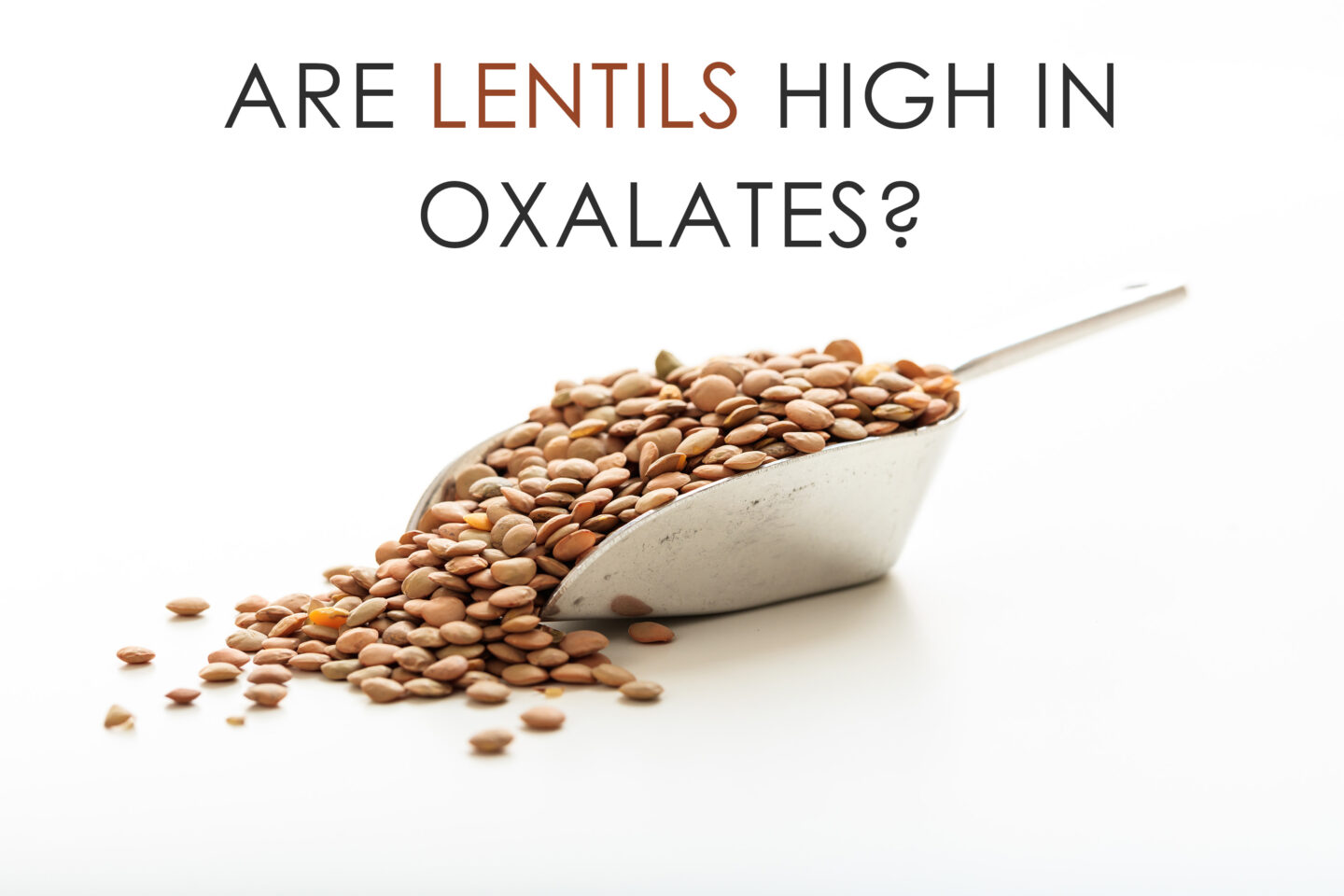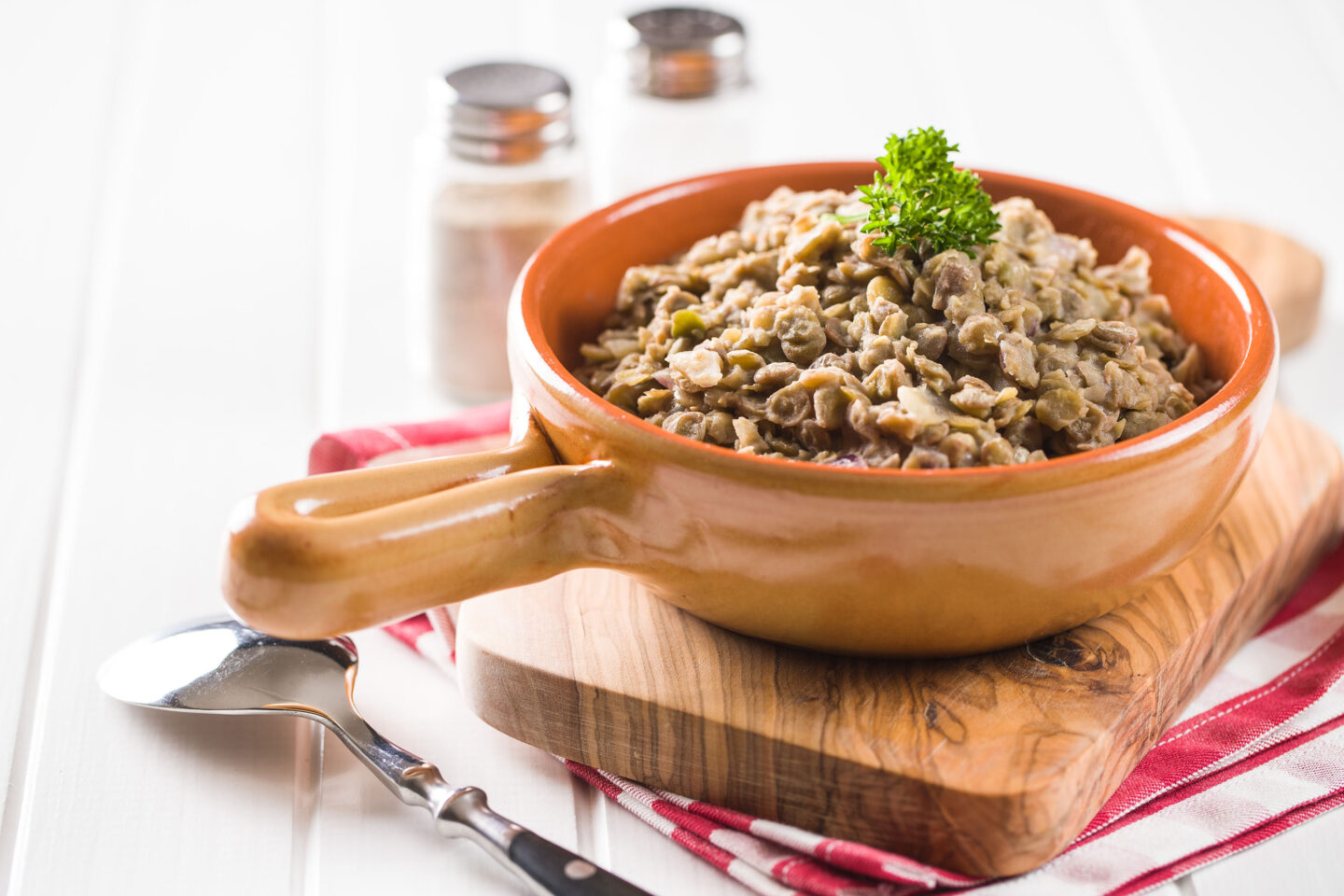Oxalates occur naturally in many foods, and our bodies also manufacture them. Oxalates bind to calcium as they're excreted from the body, potentially leading to kidney stones.

Eating foods rich in oxalates won't cause any problems for most people, but those prone to kidney stones or suffering from kidney disease may need to restrict their intake.
If your doctor has recommended you follow a low-oxalate diet, you need to know which foods you can eat as much as you'd like and which ones you should limit.
Table of Contents
Are Lentils High or Low in Oxalates?
Lentils are very high in oxalates and not suitable for most followers of a low-oxalate diet.
However, if you don't have kidney problems, lentils are a fantastic addition to a healthy, balanced diet.
What Is the Oxalate Content of Lentils?
A 100g serving of dry brown lentils contains 14.3 mg of oxalates, whereas the same-sized serving of red beans contains 7.8mg.
When cooked, lentils contain over 50mg of oxalates per serving, which doctors consider to be high for those on a low-oxalate diet.
Although oxalates mainly affect those with kidney problems, consuming too many could lead to kidney stones in the otherwise healthy. Ensuring you get your recommended daily calcium intake can negate the effects of oxalates.
Are Lentils Healthy?

A cup of cooked lentils contains 230 calories, 40 grams of carbs, and 19 grams of protein.
Protein helps build muscle mass and keeps you feeling full longer after eating.
A serving of lentils contains all of the recommended daily intake of vitamin B9 (folate), which is important for cell growth and development. Folate is crucial during pregnancy, helping ensure healthy development and preventing spine and brain defects.
Lentils are also high in vitamin B1 (thiamin), contributing to carbohydrate metabolism. Thiamin also supports nerve signal transmission and muscle contractions.
Lentils are exceptionally high in anti-inflammatory antioxidants and polyphenols, which reduce inflammation and remove free radicals from your body.
Free radicals cause oxidative stress, leading to cell damage and many age-related issues.
Eating lentils regularly lowers your risk of heart attack and high blood pressure. Some studies show that lentils may also help lower bad cholesterol levels, reducing the risk of diabetes and stroke.
The proteins in lentils prevent arterial blockages that can lead to many lethal conditions.
Is Lentil Soup High in Oxalates?
A cup (250ml) of lentil soup contains around 39mg of oxalates; people on a low-oxalate diet should avoid it.
However, lentil soup is hydrating and highly nutritious, so it's a great dietary addition for those without kidney problems.
Can You Eat Lentils Every Day on a Low-oxalate Diet?
Lentils are too high in oxalates for those with kidney issues to eat every day.
However, if you can tolerate their oxalate content, the occasional bowl of lentils could benefit your kidney health, as they are a good source of pantothenic acid.
